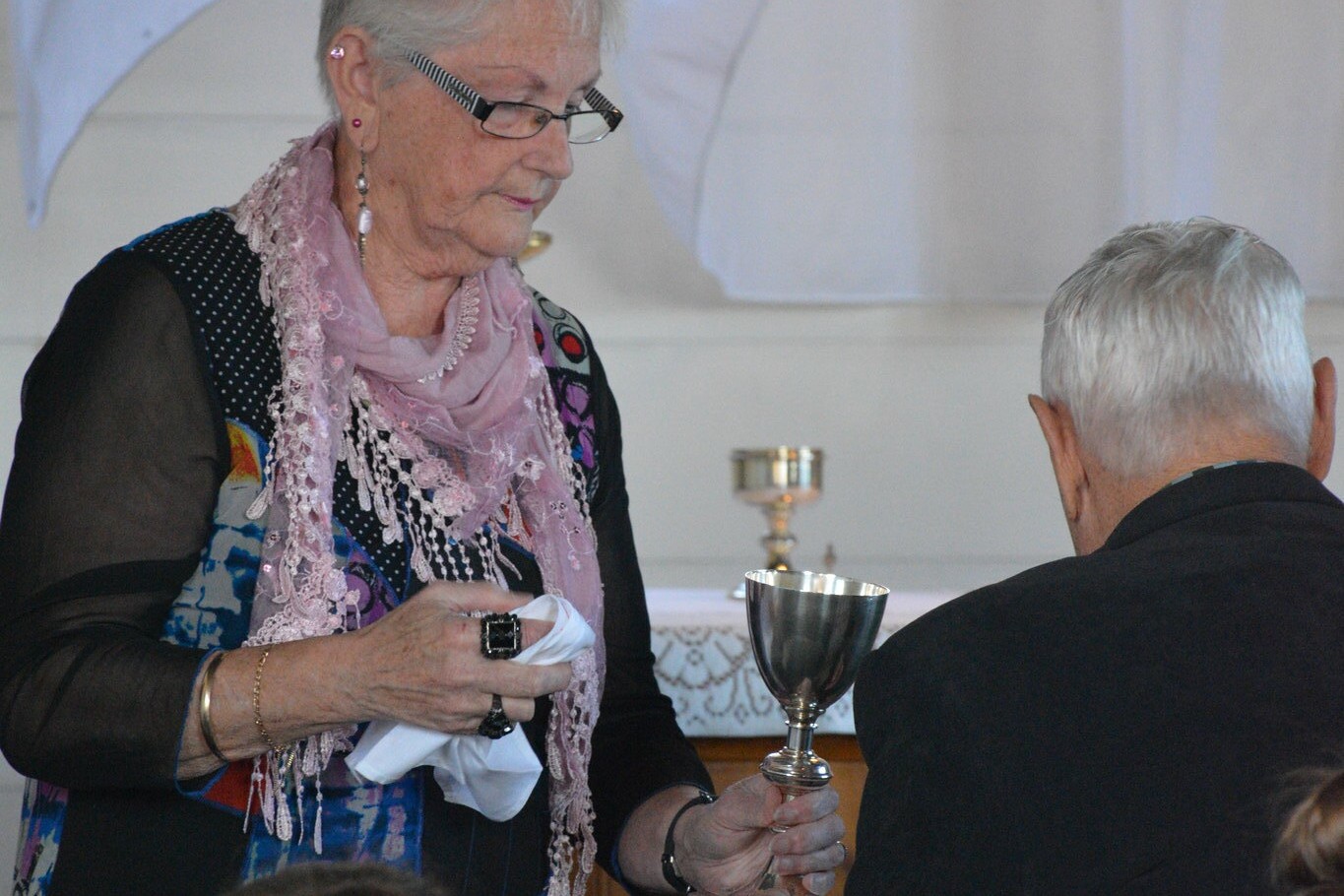Lay Ministers of Holy Communion
National Liturgical Council

When people assemble to celebrate the Eucharist, the Church – the Body of Christ – joins in Christ’s offering on the cross. Thus, they enter the saving Paschal Mystery of Jesus’ death and resurrection and they are transformed. The high point of our participation in the offering of the Mass is receiving holy communion.
Sometimes, usually through sickness or infirmity, individuals are unable to gather with the Church for Eucharist. To express their belonging to the Church and to Christ, we often bring them holy communion at home or in hospital. It is not the same as taking part in the offering of Christ on the Cross but is a powerful sacramental connection to it.
That is why our churches have a tabernacle for the reservation of the blessed sacrament (a sign of inclusion for those who are absent); that is also why, when Mass is not possible on a Sunday, we gather for a Liturgy of the Word with holy communion from the tabernacle. It is a link to the Mass celebrated previously and an anticipation of the Mass that will soon be celebrated again.
Notice the fundamental difference between the Mass and a Liturgy of the Word with communion. The Mass is Christ’s saving act on the cross. Holy communion outside Mass is a link to it. Hence follows the prime importance of consecrating on the altar at Mass enough bread and wine so that all those present may receive communion from the altar. It is this Mass the are participating in – not the one last week or last month when the bread may have been consecrated. At Mass, holy communion should not be given from the tabernacle.
Lay Ministers
We are now in a position to understand the role and ministry of lay ministers of communion. The priest, by virtue of his ordination, is able to lead the gathered Church in the celebration of the Eucharist because he represent the headship of Christ. He is the minister of the Eucharist. A lay person is never called a ‘eucharistic minister’ or ‘minister of the Eucharist’ – a lay minister simply helps with the distribution of holy communion.
In the technical language of church documents, the priest is the ‘ordinary’ minister, while the lay person is an ‘extra-ordinary’ minister. This term is unhelpful for general use, however, because ‘extraordinary’ means something different in English.
The lay ministry of helping to share communion with the people is necessary so that the time given to the distribution is not out of proportion to other parts of the Mass. It is also necessary in order to offer people the fuller sign of communion from the cup. It is better to shorten the time taken for giving holy communion so that the period of silence afterwards may be extended. The ministry is also necessary when Sunday Mass cannot be celebrated: in this case the communion minister works with the minister of the Word to enable the Sunday worship of the Church. Finally the ministry of bringing holy communion is part of a broader pastoral ministry to the sick and dying, either in hospitals or in people’s homes.
Those chosen for this ministry must be good examples of Christian service in their care for the sick and those in need, and in their engagement with building up the Christian community in harmony, justice and mutual respect. Christ who washed the feet of the disciples at the Last Supper must be their inspiration.
